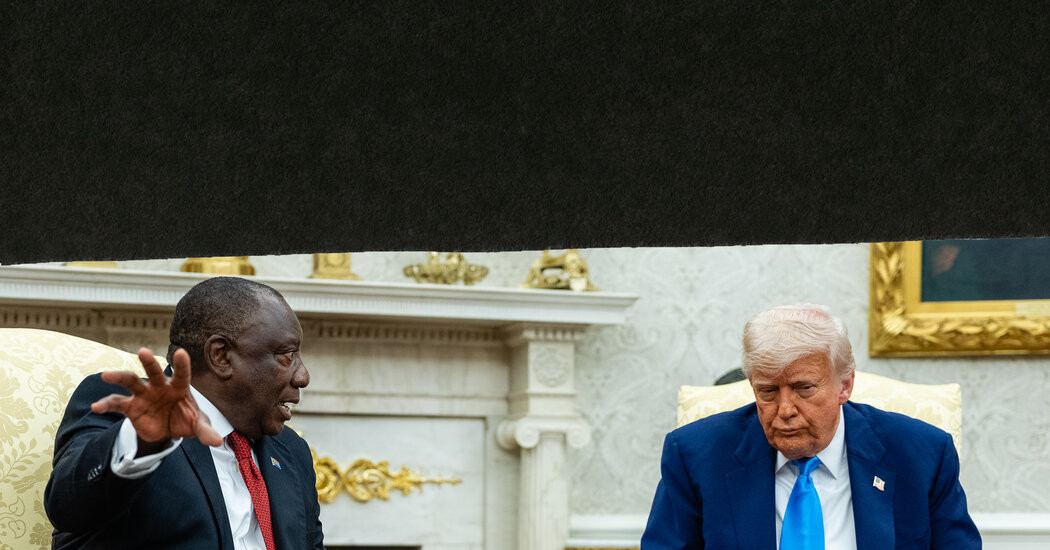

It might sound improbable in light of the bizarre encounter that unfolded in the Oval Office on Wednesday, but President Trump and Cyril Ramaphosa, South Africa’s president, actually have quite a few things in common. Both are lavishly wealthy business tycoons who coveted, then achieved, rather late in life, the highest office in their land. Both share a taste for the refined leisure of the moneyed global elite — golf for Trump, fly fishing for Ramaphosa.
But most important, both built their formidable reputations on a knack for making deals. In Trump’s case, this usually involved real estate: hotels, casinos, luxury condominiums. Ramaphosa, for his part, was central to one of the most celebrated deals of the 20th century: He was the lead negotiator in the talks that brought an end to apartheid in South Africa.
Ramaphosa and his party, the African National Congress, achieved this remarkable feat in no small part through his uncommon knack for finding common ground and a willingness to make hard choices and big sacrifices to achieve peace with a sworn enemy. Sure, Nelson Mandela and F.W. de Klerk, leaders of their respective parties, got the Nobel Peace Prize. But Ramaphosa, relentless and charming in equal measure, played a critical role in getting the deal over the finish line.
So it is perhaps not surprising that Ramaphosa, a debonair statesman who does not lack confidence in his abilities, thought he could bring his considerable talents to the Oval Office and at least begin the process of making some kind of deal with the man who thinks of himself as the king of deals. Instead, Trump hijacked the meeting to focus on a racist fantasy of white South Africans suffering genocide at the hands of a Black majority. As spectacle, it was grimly riveting. As statecraft, it was deeply damaging.
It’s not like there wasn’t anything serious to talk about. The two countries are at odds over a range of issues — South Africa’s genocide case against Israel, tariffs, aid cuts to the country’s most vulnerable citizens — that would benefit from reasoned discussion. But Trump had clearly planned to ambush Ramaphosa, bringing in a television screen and dimming the lights to show a video of an opposition party leader, Julius Malema, leading a crowd in a chant, “Kill the Boer, kill the farmer,” that Trump and his allies claim supports their view that white people face genocidal violence in South Africa.
It was, to say the least, misleading. Malema, a notorious gadfly and former leader of the youth wing of the African National Congress, was long ago expelled amid a storm of fights with the party’s leaders. His party, the Economic Freedom Fighters, advocates the broad seizure and redistribution of white land without compensation, a policy that the A.N.C. has long rejected. Trump might point to the law that allows the government to seize land “for a public purpose or in the public interest,” but the government so far has not done so without compensation.